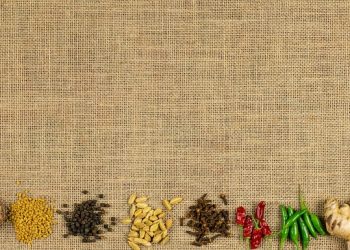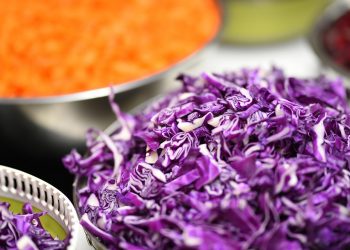Contents
5 Reasons Blackberries Are Key For Gut Healing
Ever notice how a handful of blackberries can brighten your afternoon snack? Besides their vibrant color and sweet-tart flavor, these little gems boast significant health benefits, particularly for gut health. As gut health continues to be a hot topic, understanding how foods like blackberries contribute to healing can empower you to make informed dietary choices. Let’s delve into why these berries deserve a spot in your diet—especially if you’re aiming to support your gut.
1. Rich in Dietary Fiber
Blackberries are a powerhouse of dietary fiber, containing about 7.6 grams per 100 grams. Fiber plays a crucial role in digestive health; it can help maintain regular bowel movements and reduce the risk of constipation. According to a study published in the Journal of Nutrition by Slavin (2013), a high-fiber diet can support overall gut health by fostering a diverse microbial community in the intestines.
Moreover, the soluble fiber found in blackberries can aid in slowing digestion, which ensures a gradual release of nutrients into the bloodstream. This can be particularly beneficial in managing blood sugar levels, which in turn can prevent gut-related issues, such as dysbiosis—a microbial imbalance often connected to conditions like bloating and irritable bowel syndrome (IBS).
Limitations: While fiber is vital for a healthy gut, too much fiber too quickly can cause bloating or gas, especially for individuals who aren’t used to a high-fiber diet. It’s important to introduce such foods gradually.
2. Packed with Antioxidants
Blackberries are bursting with antioxidants, particularly anthocyanins, which give them their deep purple hue. A study conducted by Wu et al. (2019) in the Frontiers in Nutrition highlighted how these antioxidants can help combat oxidative stress in the gut. Oxidative stress can lead to inflammation, which is often at the root of various digestive disorders.
Decreasing inflammation can be particularly transformative for those with pre-existing gut issues. The antioxidants in blackberries may also contribute to a healthy gut microbiome, promoting the growth of beneficial bacteria while inhibiting harmful pathogens.
Limitations: Although antioxidants are beneficial, it’s crucial to remember that they work best within a well-rounded diet. Relying solely on blackberries won’t provide a complete nutrient profile.
3. Promotes Beneficial Gut Bacteria
Research suggests that the compounds in blackberries can positively influence gut microbiota composition. A study by Zmora et al. (2018) in the Cell journal found that fruits with a high phenolic content, like blackberries, can enhance the abundance of beneficial bacteria such as Bifidobacterium and Lactobacillus. These bacteria are associated with improved digestion and immune function.
Inclusion of blackberries in your diet can thus foster a healthy microbial environment, potentially reducing the risk of developing chronic health issues. Furthermore, these beneficial bacteria can also assist in the fermentation of fibers, producing short-chain fatty acids (SCFAs) that are crucial for gut health.
Limitations: Individual responses to foods vary. While many may benefit from increasing their intake of blackberries, others with specific conditions (such as certain fruit intolerances) might experience negative effects.
4. Supports Immune Function
A healthy gut is integral to a well-functioning immune system. The gut houses a significant portion of the body’s immune cells. Blackberries, rich in vitamins C and K and various phytonutrients, can play a supportive role in immune health. According to a comprehensive review by Calder et al. (2020) in the journal Nutrients, vitamin C is known for its role in enhancing immune function and may help mitigate inflammation in the gut.
Moreover, the bioactive compounds in blackberries can reinforce the gut barrier, which helps prevent pathogens from entering the bloodstream. This strengthening of gut integrity is crucial in preventing systemic inflammation and boosting overall health.
Limitations: It’s essential to note that while blackberries can support immune health, they should be consumed as part of a diverse diet that includes various nutrients and food groups.
5. Reduces Gut Inflammation
Chronic inflammation in the gut can lead to conditions such as inflammatory bowel disease (IBD). Some studies indicate that the phytochemicals in blackberries can help reduce markers of inflammation. For example, research in the Journal of Agricultural and Food Chemistry by Dufresne and Farnworth (2001) suggests that these compounds can modulate inflammatory responses.
By incorporating blackberries into your diet, you may experience a reduction in gut-related inflammation over time. This can result in improved digestive health and an overall feeling of well-being.
Limitations: While blackberries can assist in reducing inflammation, they are not a substitute for medical treatment in those with diagnosed conditions. Always consult a healthcare professional for personalized advice.
FAQs
1. Can I eat too many blackberries?
While blackberries are nutritious, moderation is key. Eating high amounts can lead to digestive issues, especially if your body isn’t used to high fiber intake. A handful (about 30-50 grams) a day can be a good starting point.
2. Are frozen blackberries just as good for gut health?
Yes, frozen blackberries can retain most of their nutrient profile. Just be mindful of added sugars in some frozen fruit products. Always check the label.
3. How can I incorporate more blackberries into my diet?
They’re versatile! Enjoy them in smoothies, sprinkle them on oatmeal, toss them in salads, or eat them plain as a snack.
4. Should I consult my doctor before adding blackberries to my diet?
If you have a specific health condition or are taking medication, it’s wise to discuss dietary changes with a healthcare professional. They can provide personalized advice based on your situation.
Conclusion
Incorporating blackberries into your diet offers numerous benefits for gut health, from providing vital fiber and antioxidants to nurturing beneficial bacteria. While they shine on their own, remember that a diverse diet is essential for comprehensive health. Consider these berries not just as a snack, but as key players in your journey toward better gut health. As you enjoy their flavor, you’re also giving your gut a much-deserved boost.
References
- Slavin, J. (2013). “Fiber and Prebiotics: Mechanisms and Health Benefits.” Journal of Nutrition, 143(5), 750S-759S. URL: https://doi.org/10.3945/jn.112.172320
- Wu, T., et al. (2019). “Dietary Polyphenols and the Gut Microbiota: A Review.” Frontiers in Nutrition, 6, 16. URL: https://doi.org/10.3389/fnut.2019.00016
- Zmora, N., et al. (2018). “Mapping Digestive System Microbiota Host Interactions.” Cell, 175(1), 138-148.e11. URL: https://doi.org/10.1016/j.cell.2018.08.036
- Calder, P. C., et al. (2020). “The Immune Function of the Gut.” Nutrients, 12(6), 1436. URL: https://doi.org/10.3390/nu12061436
- Dufresne, C. J., & Farnworth, E. R. (2001). “A Review of Tea as a Functional Food.” Journal of Agricultural and Food Chemistry, 49(12), 4606-4615. URL: https://doi.org/10.1021/jf0101242
Get Your FREE Natural Health Guide!
Subscribe now and receive our exclusive ebook packed with natural health tips, practical wellness advice, and easy lifestyle changes — delivered straight to your inbox.














